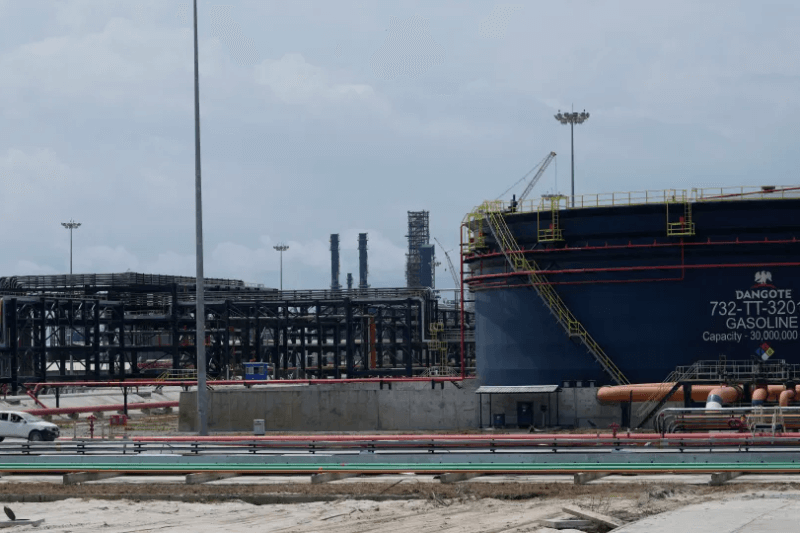Nigeria’s energy landscape is about to be turned upside down by the Dangote refinery on the outskirts of Lagos, which is due to start producing petrol in mid-September.
This huge industrial complex, built by Aliko Dangote, Africa’s richest man, has a processing capacity of 650,000 barrels a day and is positioned as a key player in the country’s energy strategy.
Dangote Refinery has had to deal with repeated delays to its petrol production programme, which was originally scheduled to start in June.
According to the refinery’s CEO, Aliko Dangote, a slight technical delay meant that the June target could not be met, leading to a postponement of the start-up date to July. However, the refinery did not meet the July deadline either.
Mr Dangote gave assurances that production would start in August, but a new report from the IIR suggests that there could be further delays, with petrol production now due to start in mid-September. In the meantime, the refinery has begun supplying jet fuel and diesel to the country’s national traders.
Today, the $20 billion project, which has faced a number of challenges since its launch, has reached a crucial stage. Following preliminary tests, the refinery is ready to reach full production capacity. This step forward represents an opportunity for Nigeria to reduce its dependence on imports of refined petroleum products, while making the most of its local resources.
Dangote’s refinery, which was previously forced to turn to the United States and Brazil for its crude oil supplies, is now turning to a more local source of supply.
Keep Reading
The refinery is expected to import more than 80% of its crude oil from Nigerian fields in the third quarter of 2024, compared with less than 75% in the previous quarter. This change follows a strategic decision by the Nigerian government to begin selling crude oil to the refinery in naira from 1 October 2024, a move designed to stabilise the exchange rate and support the domestic economy.

